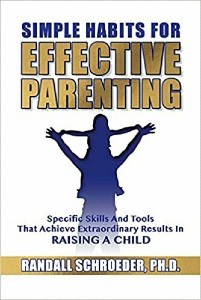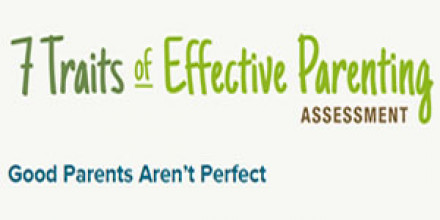Dr. Randy Schroeder: That’s what parenting is all about is helping a child succeed without parents. And so the more-so the more decisions a parent gives a child at home because we know that once they hit the teen years, there’s gonna be some major decisions going on.
Jim Daly: Yeah.
John Fuller: Dr. Randy Schroeder joins us today on this last day of the year and this Best of 2021 Focus on the Family broadcast. I’m John Fuller and your host is Focus president and author Jim Daly.
Jim: You know John, parenting is close to the heart of Focus on the Family. I think in many ways, that’s how we were built to help equip parents to be the best parents they could be. And man, we want to love our children, guide our children. And most of all, we want our children to have a deep faith in Christ as we launch them into a world that will target that all the time.
John: Mm-hmm.
Jim: Uh, it’s one reason we try to cover a number of parenting topics here on this program. And sometimes, uh, we like to examine, well, I guess what we’ll call the nuts and bolts of parenting. And we’re gonna do that today with our great guest. So sit back, uh, get a cup of something, uh, tea, coffee, whatever and let’s get into some great parenting content.
John: Mm-hmm. Dr. Randy Schroeder is a former educator and now has a successful counseling practice in Carmel, Indiana, where he lives with his wife, Jenny, and, uh, they have two married sons and six grandchildren. And, uh, Randy has written a book called Simple Habits for Effective Parenting: Specific Skills and Tools That Achieve Extraordinary Results in Raising a Child. And you can find the book at focusonthefamily.com/broadcast or call 800, the letter A, and the word FAMILY.
Jim: Dr. Randy, welcome to Focus on the Family.
Dr. Schroeder: It is my privilege and pleasure to be with you, Jim and John. And thank you so very much for having me.
Jim: It’s great. I could see you’re full of energy and you were a football coach, which we connected right away on that.
Dr. Schroeder: Well, we did.
Jim: (laughs).
Dr. Schroeder: Jim, I never realized you were an excellent high school quarterback and-
Jim: Well, I only-
Dr. Schroeder: … uh, enjoyed it as well.
Jim: Yeah, I- I say excellent. I really was par just, yeah, even with the rest of the guys, but, um, it’s so much fun. There’s so many good things that are learned through sports, right?
Dr. Schroeder: Oh, yes, sir.
Jim: Uh, you’re a counselor now after being that football coach and that teacher, I mean the sporting environment teaches you so much. In fact, even hiring here at focus, one of the things I’ll ask people when I get a chance to interview them is did you do team sports or individual sports?
Dr. Schroeder: Mm-mm.
John: Mm-hmm.
Jim: There is a difference, you know-
Dr. Schroeder: Mm-hmm.
Jim: … people that did individual sports, they’re very much, they move in that direction.
Dr. Schroeder: Uh-huh.
Jim: They want that self-accountability and determination of their own destiny and team sports are very different. You gotta get along, you gotta execute the play and it does lend itself to a corporate environment.
Dr. Schroeder: Yes, it does. Yes, it does.
Jim: (laughs).
Dr. Schroeder: And- and- and, uh, in that regard, I, you know, a- a coach and being a former coach is a leader and a effective parent is a leader, uh, and wants to lead guide, nurture their kids in a very positive direction. And, uh-
Jim: You know, that caught me as I was reading the prep for this broadcast, ’cause I, you know, in terms of leading, I, you know, I was the quarterback and all that but-
Dr. Schroeder: Mm-hmm.
Jim: … in parenting, I feel a little awkward thinking that I’m leading in that way, but you are as a parent, and you should embrace it.
Dr. Schroeder: Exactly, exactly. There’s actually Jim and John, the false belief by many parents that the goal of parenting is to control behavior. And, uh, in a sense, a parent can control behavior up until about the age of 12 when their eyes are on their child. But then after the age of 12, when they hit 13 on up into young adulthood, now, uh, kids are gonna have to make some major life decisions. What are they gonna do with cigarettes and vaping and marijuana and alcohol and drugs and sex? And so a leader parent wants to influence a child’s heart. I mean, what does Proverbs 4 say, above all else, guard your heart guard, your thoughts because that’s what’s going to lead, uh, a child to be a responsible, capable, confident, godly decision maker one day.
Jim: Yeah.
Dr. Schroeder: Uh, and so that’s essential.
Jim: Can I ask you about this, uh, CDC during the pandemic came out with a research project that they did. They identified that 25% of 14-to-24-year old’s, uh, that depression was up, anxiety was up that suicidal ideation had occurred in that group of people, 24% of 14-to-24-year-olds. That’s about seven to 8 million people that, that 25% represents. That’s an astounding number of young people who I don’t feel are getting that kind of feedback that I am worthy. That I’m good at something, that somebody cares about me and how desperately we as human beings need that fundamental feedback that you care about me. It’s built into our DNA.
Dr. Schroeder: What I have found Jim and John, is that desire alone to be an effective parenting is not enough. I think, uh, verbal, unconditional love needs to, and that’s acceptance. You know, God, through our faith in Jesus Christ loves us unconditionally. Kids need to be loved unconditionally. And I think that can happen Jim and John through three phrases that need to happen daily and if not daily, regularly. And the first one is I will love you even more tomorrow than I do today. Secondly, Jim and John is to ask a question, I’ve been doing this for over years. Having parents ask the question, do you wanna know a secret? And then come back with the phrase, I love you no matter what, and the three words that are key are not, I love you, but no matter what.
Jim: Hmm.
Dr. Schroeder: No matter what. And third, if there’s one question Jim and John that I hear over and over from teenagers that I’ve counseled over the years and have been numerous, Dr. Schroeder are my parents proud of me.
Jim: Ah, that’s amazing.
Dr. Schroeder: It is unbelievable how infrequently and again; I’m not being critical of parents. They don’t realize the importance of what to say, but that it is so important to say, I am proud of you-
Jim: Yeah.
Dr. Schroeder: … on a daily basis and especially when a child is not achieving or accomplishing anything.
Jim: Yes.
Dr. Schroeder: When- when they’re just in the car and a parent pats ’em on the leg, tousles their hair and say, “I am so very proud of you.”
Jim: Yeah. Let me ask you, and then I’m- I’m gonna get to the four R and then we’re gonna-
Dr. Schroeder: Mm-hmm.
Jim: … work through more of the content of your great book.
Dr. Schroeder: Sure.
Jim: Uh, but in that context, uh, some parents are going, yeah, but you don’t know where my child’s at. You know-
Dr. Schroeder: Mm-hmm.
Jim: … he, he’s not, or she is not doing the homework. They’re not getting the grades that I’d hope that they would have, it’s a conflict.
Dr. Schroeder: Mm-hmm.
Jim: How do you, as a parent balance expectation of performance against loving them unconditionally, this is probably the age-old question, right? How do we let them know we love you; we care about you so that they could feel that? But hun, we still gotta get you going here. I mean, talk to me about that.
Dr. Schroeder: Jim, that is a great question. And what needs to happen, we need to go to scripture, the parable of the talents.
Jim: Mm-hmm.
Dr. Schroeder: Now I know in the parable of the talents that, uh, it could be a management of finances. Okay, but it also can be a- a management of talents and abilities. And so I think, and the parable of the talents, again, one got received two and five talents, they dealt with the talents and Jesus said, you know, “Good job, good and faithful.” The other buried their talent ability and Jesus said, “You’re wicked and lazy.” And so the focus by our heavenly father for the three of us, for everyone, for children is on effort and improvement. And so I continually stress to parents do not be concerned about achievement and accomplishment. In fact, I tell kids all the time, grades don’t matter. All that counts is giving a good, consistent A- effort with your talents and abilities.
Jim: Let, let’s move to the four R’s.
Dr. Schroeder: Okay.
Jim: Uh, describe what the Rs are and what they’re about.
Dr. Schroeder: The first R is relationship. The most important goal, the main objective for every parent is to build a strong parent child relationship. It all begins there.
Jim: Mm-hmm.
Dr. Schroeder: Think about for us as Christians, the stronger our relationship is with Jesus Christ-
Jim: Yes.
Dr. Schroeder: … the more we wanna live the Godly life, the more we wanna follow the 10 commitments, the weaker, our relationship with Jesus, the less concerned we are about living a Godly life and following the 10 commandments. Likewise, when a child has a strong relationship with their parent, Jim, and John, then they are willing to follow the lead, the guidance, the nurture, the encouragement by a parent toward a Godly life.
Jim: Dr. Randy, when you look at parenting and you break it down to the simple form, is that the most important thing to maintain in, especially I’m thinking the teen years maintain that relationship because that in the end will be what counts more than their performance, their behavior, where they’re at spiritually at 14 and 15, maintaining that relationship will be the right thing at 24, 25, 30, is that fair?
Dr. Schroeder: No- no- no, Jim, you hit the nail right on the head.
Jim: I feel that.
Dr. Schroeder: I- I mean, that- that is the main goal of parenting, a strong parent-child foundation and how to achieve that. A- and I talk about that in my Simple Habits for Effective Parenting book. It’s through simple, yet effective habits that so often parents don’t know what to do, how to do it. And specifically they need guidance.
Jim: Okay, we got relationship as the first R. Let me have John, uh, do the break and then we’ll come back to the second R.
Dr. Schroeder: Okay.
John: And you’re listening to Focus on the Family with Jim Daly and, uh, our guest today is Dr. Randy Schroeder. He’s written this great book as he is just mentioning Simple Habits for Effective Parenting. Look for a copy, uh, at our website. It’s focusonthefamily.com/broadcast or call 800, the letter A, and the word FAMILY.
Jim: All right, we have relationship. What’s the next R?
Dr. Schroeder: The next R would be routines. And there’s a lot of healthy routines. There’s a morning routine of course. And research has found that, uh, when the first five minutes for a child are positive, that often leads to a positive day for a child. So avoiding the Cs complaints, criticism, correction, condemnation so important, but there’s bedtime routines, mealtimes, mealtimes are one of, is one of the most, uh, simple, yet effective habits that so often is missing in families and mealtimes together lead to a lot of positives. There’s prayer time together. Uh, I- I think one of the top 10 simple yet effective habits, Jim and John would be monthly date your child.
Jim: Mm-mm.
Dr. Schroeder: That is absolutely essential. And so many parents, hundreds and hundreds of parents have told me, Dr. Schroeder, that’s what turned around my relationship with my child is that monthly date your child. Uh, if I could tell one story just to kinda highlight how important-
Jim: Sure.
Dr. Schroeder: … that is. I saw a 15-year-old and his dad had a horrible relationship. And, uh, in fact, when they came into counseling, the 15-year-old actually gave his dad orders and said, dad, you sit in that chair. I’m sitting on the sofa. He- he-
Jim: Oh, that had to be interesting for counselor, for you.
Dr. Schroeder: He- he- he would not let the dad sit with him on the sofa.
Jim: Wow.
Dr. Schroeder: Uh, and so, uh, I found out, uh, uh, date your child by the way, I should say Jim and John is usually going out to eat for 45 to 60 minutes, there’s no problem talk all the way to the date during the date all the way home. And so it’s just a positive parent-child time. So I found out the teenager’s, uh, two favorite restaurants. One was in Italian. Uh, and I asked him, I said, “Will, you go out to eat with your dad on Saturday at lunch.” And I remember he looked right at me he said, “Dr. Schroeder, did you hear me, what I’ve been saying the whole session, I don’t like my dad.
Jim: (laughs), wow.
Dr. Schroeder: But I convinced him. He went out to eat lunch. I had the dad tell the son during the session, I will not criticize, correct, complain, or condemn the whole date. So halfway through the meal, the teenager picked up his spaghetti and meatball and stuffed it in his mouth.
Jim: With his hand?
Dr. Schroeder: With his hand, (laughs), and he finished the meal with his hand.
Jim: He’s provoking his dad.
Dr. Schroeder: And- and his dad could hear me echoing, do not use the Cs. Well, the dad, actually, Jim and John had more self-control and restrain than I had, would’ve had.
Jim: (laughs).
Dr. Schroeder: Because if you can believe it, the dad did not correct him on the way home, nothing Saturday afternoon, nothing Sunday, nothing Monday, Tuesday, when dad came home, dad asked the son, “If you pick Italian restaurant, will you please use a fork next time?”
Jim: Mm-hmm.
Dr. Schroeder: The 15-year-old smiled and said, “Sure dad.” Turned their relationship around. Now, the dad, uh, Jim and John used most of the simple, yet effective habits in Simple Habits for Effective Parenting made a huge difference. And they developed a strong parent-child relationship, but that date your child begin it. And so that is a huge routine-
Jim: Mm-hmm.
Dr. Schroeder: … I think for every parent.
Jim: Responsibilities.
Dr. Schroeder: Responsibilities, uh, household chores and task build a child’s self-esteem, uh, help a child develop confidence and household chores and responsibilities lead to adulthood. Uh that’s what’s-
Jim: That’s right.
Dr. Schroeder: Yeah, that’s what gonna happen as an adult in marriage, uh-
Jim: You gotta be able to do these things.
Dr. Schroeder: Exactly.
Jim: The last of the four Rs is rules. Uh, of course moms and dads, yeah, what are the rules? (laughs) yeah-
Dr. Schroeder: A- a-
Jim: … we love the rules.
Dr. Schroeder: And that usually you’re right. Usually, uh, Jim and John, that, uh, that’s the most, uh, focused area and- and yet can lead to struggles. And- and-
Jim: Oh yeah.
Dr. Schroeder: Yeah. And- and, uh, and actually the rules, if a parent-child relationship is strong, rules are usually not an issue for a child. And if I could just mention quickly, the ours should be in this direction, relationship plus a healthy application of the rules equals a responsible, Godly decision-making child. However, what happens so often if rules are the primary focus minus that strong parent-child relationship, now we’re gonna see a child that probably becomes rebellious and defiant. So rules are secondary and the other aspect to that is most parents are not sure and are not able to lovingly apply the rules, uh, in an effective manner. And if we have time, we can get to how that can happen as well.
Jim: Well, hopefully we will. And I, you know, I think we can hit it right now. I think that balancing factor, you know, it’s, I, we think of it as a light switch rather than a dimmer switch, right?
Dr. Schroeder: Yes, sir. Yes, sir.
Jim: And we need to understand, I think parents do get tripped up on if I’m loving my child, if I’m developing my relationship with my child, then I can struggle applying the rules but give us the boundaries h- how to do both well.
Dr. Schroeder: Yeah. I- in terms of applying the rules and, you know, giving consequences or taking away privileges, it begins with a question, will you please, so many parents use a sentence and that does not give a child also to make decisions. Children need to make decisions in the home. And so if I said to you, I could use the rule of courtesy Jim and John, and say, please switch seats. Well, even though I use please, that’s a sentence which is a command to demand an order to do it, I didn’t give you a chance to say no thank you. And that can create friction in a parent-child relationship. So what needs to happen is I ask you, “Will you please switch seats?” Now you have the freedom of choice. You can say, sure, we’ll switch or no, thanks we’ll stay where we’re at. So the first step is always to ask, will you please? Most of the time, it needs to be a question. Yeah, every once in a while, it can be a sentence with a please, but 90 to 95% of the time it needs to be, will you please?
Jim: Now I- I could see myself when the boys were younger going, will you please switch seats? (laughs) That’s not what you’re saying.
Dr. Schroeder: That, that’s actually my, in uh, effective parenting Jim you’re right (laughs). Uh, there needs to be, the will you please needs to be a loving, encouraging can be strong.
Jim: Sincere.
Dr. Schroeder: Yeah, can, sincere but yeah, it needs to be loving and encouraging. Will you please?
Jim: Okay. So the child says no.
Dr. Schroeder: Yeah. So let’s say that the parent says, will you please be respectful? Okay. Then it goes to either, or you decide.
Jim: Mm-hmm.
Dr. Schroeder: Either be respectful or go to your room for 10 minutes, you decide.
Jim: Do a timeout.
Dr. Schroeder: Do a timeout. And if the child still continues to be disrespectful, then the parent, and this is what’s absolutely essential. And this, I think causes more rebellion and defiance in a home as much as anything is that a parent not use the pronoun I, I’m gonna send you to your room. I is controlling. It’s not being a leader. It’s being a boss, micromanaging. And so what needs to happen, the parent needs say, you decided to go to your room because you’re being disrespectful.
Jim: Put it on the child.
Dr. Schroeder: Uh, and so it’s the child’s decision.
Jim: Mm-hmm.
Dr. Schroeder: The parent doesn’t need to feel bad; they were not being disrespectful. And so it’s always, you decided because the other thing that happens frequently, even with the pronoun I, so many parents use the word punishment and I’ve had hundreds and hundreds or over a thousand parents say, I never realized that punishment was not a healthy word and it’s not, it creates defiance. And so, so many parents say, I’m gonna punish you by sending you your room, being, for being disrespectful. I’m gonna punish you by not letting use your cell phone. It needs to be, you decided because, and I can tell you, Jim and John, it took p- many times of practice to learn. Will you please either, or you decide, you decided because.
Jim: Mm-hmm, right. And I, again, these are great concepts that you covered in Simple Habits for Effective Parenting. Th- that one, right there, either do this, or you can go to your room for your time out. I mean, I wish I would’ve had that tool. I think I; you know, I didn’t deploy it ’cause I just didn’t know that.
Dr. Schroeder: Yes s-
Jim: And uh-
Dr. Schroeder: Yes sir.
Jim: … you know, it does help the child, especially the thinking child to realize, oh, I actually control this.
Dr. Schroeder: Yes.
Jim: And that’s a good thing.
Dr. Schroeder: Yeah. That, I mean, that’s what parenting is all about is helping a child succeed without parents. And so the more-
Jim: (laughs), yeah.
Dr. Schroeder: … so the more decisions Jim and John a parent gives a child at home because we know that once they hit the teen years, there’s gonna be some major decisions going on.
Jim: Yeah. And they need to be equipped to make those decisions.
Dr. Schroeder: Yes sir.
Jim: You- you talk about something called grandma’s law.
Dr. Schroeder: Oh my goodness.
Jim: What’s grandma’s law? I gotta know grandma’s law.
Dr. Schroeder: That- that probably, I- I would say it’s an easier one to learn. And that probably de- has de-stressed more families than any other simple, yet effective habit in Chist- in the effective parenting book. And grandma always say to us, “When you have eaten your vegetables and chicken, then you may have a piece of the pie I baked you.” So its grandma’s law is when you, then you, okay?
Jim: When you, then you.
Dr. Schroeder: When you, then you and it, a lot of parents will use if you, then you, if you then you actually does not display confidence in a child.
Jim: Mm-hmm.
Dr. Schroeder: So I best story I- I have, uh, I saw a dad who came in, came in without mom actually seeking simple, yet effective habits. And he said, “We can’t get our 15-year-old to clean her bathroom.” And I said, “Dad,” I said, “you’re gonna love this.” I said, uh, grandma’s law when you, then you, I had him practice it, go home, ask your daughter, will you please, he said, and by the way the dad said, we have threatened, we’ve intimidated, we bargained. She just won’t clean her bathroom. Aa I said, when you go home, again, like you said, Jim it needs to be loving, “Will you please hand me your cell phone?” Got the cell phone said, “When you clean your bathroom, then you may have your cell phone.” Back and then dad walked away.
Jim: Yeah, don’t negotiate.
Dr. Schroeder: Yeah. But- but didn’t negotiate, but it’s whose decision, it’s the daughters determines when she gets the cell phone back. About 15 minutes later, she said, “The bathroom’s clean.” Daddy went in there. The sink was still a little dirty. He said, “When you clean the sink, then you may have your cell phone.” He walked away again, about five minutes later, he went back in sink was clean and, uh, gave her, her cell phone. I remember he came in and- and he had a big smile on his face, and he said, “Parenting is gonna be so easy.”
Jim: (laughs).
Dr. Schroeder: And I said, “Parenting is never easy.”
Jim: Yeah, right, (laughs).
Dr. Schroeder: Wa- wasn’t easy for my wife and I, it’s not easy for anybody. But I said the, when you, then you will, de-stress your relationship with your daughter.
Jim: Mm-hmm. Why do you think these phrases are so effective? Why do they work?
Dr. Schroeder: Well, they work because they put the responsibility on the child.
Jim: Mm-hmm.
Dr. Schroeder: The child needs to make decisions. And I can tell you when I’ve had numerous parents tell me, a- and this is when a parent knows they have the tools down is when they hear their child saying to them either, or you decide either, or you decide when you, then you, when you, then you, I am tired of making all these decisions in the home. That’s when parents know that the child is, it’s sinking in that they’re having to make decisions. But there are again, significant decisions in the teenage years and the young adult years.
Jim: One thing I wanna make sure we capture here at the end; you do stress the need for humor in your relationship. Laughter, smiles, et cetera, ’cause it can get a little daunting for some parents, they feel they’re always the police officer.
Dr. Schroeder: Yes.
Jim: They’re always the judge, they’re always the jury.
Dr. Schroeder: Mm-hmm.
Jim: And uh, you wanna make sure life has some high moments, some fun some laughter’s some, uh, smiles, just as you said. So how do you as a parent, make sure those moments are occurring?
Dr. Schroeder: You hit the nail on the head Jim. Positive humor increases relationship, parent-child satisfaction. And just, it enhances the whole family atmosphere. Laughter exercises muscles, laughter reduces blood pressure, laughter uh, increases oxygen to tissues. And so, you know, parents need too often. One of my suggestions for parents when they come in for counseling with their youngster, when a youngster’s struggling is that they watch comedy movies, comedy TV shows, and I encourage, you know, parents and child to laugh out loud.
Jim: Let me end with this question Dr. Randy, because, uh, for the parent that struggles, I mean they have had this fight going for maybe a few years now, maybe that son or daughter of their started at seven and started displaying this controlling defiant behavior, et cetera. And now it’s 13, 14. And some-
Dr. Schroeder: Mm-hmm.
Jim: … of those big decisions like you’ve described or occurring. You know whether it’s poor habits of vaping or drugs or pornography, whatever it might be.
Dr. Schroeder: Mm-hmm.
Jim: Um, how does that parent mix all of this together and try to really change the trajectory of their relationship first, all the four Rs that you mentioned and there’s this nagging in the back of their mind that if we don’t get this right, and it’s hard to find humor in that moment when the pressure is on when your child is misbehaving to the point of destructive behavior-
Dr. Schroeder: Mm-hmm.
Jim: … how you can find the lighter side of life and God’s heart for this child when it’s nothing but pain right now. That’s a big question.
Dr. Schroeder: Well, it is a big question and- and something we do not have time to talk about are the- the A of affection and attention appreciation and- and so, uh, those can make a huge difference, especially positive labels. But I think parents need to, my- my favorite sentence in life is I am forever forgiven.
Jim: Yeah.
Dr. Schroeder: The three of us are forever forgiven through the blood of Jesus Christ and we’re gonna have eternal life in heaven. Parents need to say I’m forever forgiven for the mistakes that I’ve made. My wife and I made mistakes that we are forever forgiven for. And parents need to give that forever forgiveness to their kids as well.
Jim: Yeah, and that’s the parallel we need to think about. Uh, and the Lord makes it so simple for us. Marriage, parenting, how does God interact with us? How do we perceive the Lord, our Father in heaven? And those are the attributes that we need to in our own marriages and in our parenting.
Dr. Schroeder: So well stated.
John: There were so many great takeaways from Dr. Randy Schroeder on today’s Best of 2021 Focus on the Family. And I do hope you’ve been encouraged to start, uh, implementing some of those effective habits in your own parenting, especially as we start the new year.
Jim: Uh, this is core stuff and such timeless solid concepts for raising children. Uh, you know, here at Focus on the Family, we wanna help you be the best parent you can be. Uh, we’re here for you. That’s one reason we created our seven traits of effective parenting assessment. It’s a quick little online quiz that will help you determine your strong points in parenting as well as some of those areas, uh, that need some growth. We also have lots of other resources to help you. In fact, Dr. Randy’s book, Simple Habits for Effective Parenting is a great place to start, and you can get that through Focus on the Family. And when you do the proceeds go right back into ministry, giving families hope every day.
John: And we hear from so many moms and dads who need answers. Uh, we do count it a privilege to be able to help. And I’ll share this note that we received from an anonymous listener who wrote, thank you, Focus on the Family. I’ve been listening to the Focus podcast every day, and it’s been a blessing for my family and me. Two years ago, I was in a really bad place in my marriage and in my relationship with my kids. I was disconnected and my relationship with God was bad. Then I started listening to Focus and I applied the solutions and principles I heard to my marriage and with my kids. And now we are in a better place, a healthy place. Our relationship with God is much better. Thank you. Keep up the good work. God bless Focus and the ministry you’re doing.
Jim: And that is the very reason Focus exists. Uh, but we couldn’t help families like that without your help. We’re doing this together and here at the end of the year, your support provides scripture-based resources and programs to save and strengthen these families. And when you give a gift of any amount today, we’ll send you a copy of Dr. Randy’s great book, Simple Habits for Effective Parenting as our way of saying thank you.
John: And through a special year end matching opportunity, your gift will be doubled, which means you’ll have twice the impact toward saving marriages, rescuing moms and babies from abortion, equipping parents to raise children boldly in faith, redeeming broken families, offering emotional peace to those who are struggling, caring for children in foster care and so much more.
Jim: Let me add too, your prayers and financial gifts are critical so that we can finish the year strong and plan to reach even more families in the coming year. And I’m eager to see how God will work through you and Focus on the Family to touch so many in 2022.
John: Donate today, take that assessment, and get your copy of Dr. Randy’s book, Simple Habits for Effective Parenting. All the details are at focusonthefamily.com/broadcast or call 1 800, the letter A, and the word FAMILY. Well happy New Year, have a wonderful and safe weekend and join us Monday for another Best of program as we hear from Wendy Speake, she’ll encourage you to fast from sugar.
Preview:
Wendy Speake: And it’s really powerful. When you diet, you say I’m gonna crowd out that sugar with more healthy food options, but when you fast, you say, I’m gonna crowd out what I’m running to, what I’m turning to- … by turning to Christ.
End of Preview
John: On behalf of Jim Daly and the rest of the team here, thanks for joining us today for Focus on the Family. I’m John Fuller, inviting you back as we once more help you and your family thrive in Christ.






















